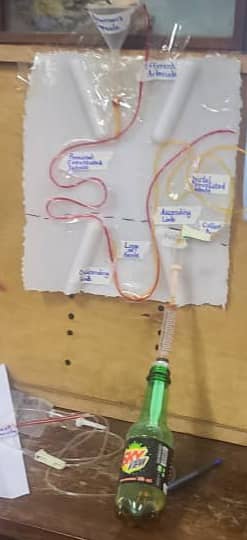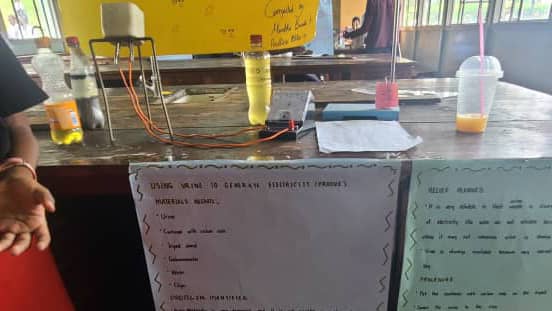It has been a seesaw game between the businessmen and women in Kampala and later countrywide over the past two weeks haggling over the EFRIS.
EFRIS in full is the Electronic Fiscal Receipting and Invoicing Solution. It is a digitalised form of tax collection monitoring that is aimed at not only making the process easier for the Government to collect tax but also aimed at widening the catchment of tax collection.
Ideally speaking it is a good approach if one wants to ensure that Ugandans participate equally in tax contribution. We currently have a system where the biggest burden of tax collection lies upon those employed in White Collar Jobs. Mainly because it is the easier tax to collect through their employers.
Now here comes a situation where donor funds are dwindling and we are having to look inward for solutions to the financial crisis being created. When one objectively looks at the resentment the society is putting up against the EFRIS system, you realise that the source of the problem is actually more to do with the way the Government of Uganda is running its affairs.
For a long time, the Government has practiced alot of Fiscal Abuse. How?
Judge by looking at what characterises the relationship the Government of Uganda has with its citizens and the business community especially the Local Ugandans;
- Misuse of Tax Payer’s money for individual gain. Let us face it, this has become typical of the current government’s way of doing business. Day in, Day out, you hear stories of depressing scenarios where tax payers’ money is casually put to bad use and no one gives a hoot.
The Uganda Police bought a fixed wing aircraft at 30.8 Billion Shillings in 2018 and after sitting around idle for all this time, six years later, it is up for sale at 16.6 Billion Shs (Half the purchase price) with the claim that it is not suitable for use.
Uganda Railways bought 4 used locomotives at 48 Billion Shs when there was an option to buy brand new ones at a cheaper cost of 36 Billion Shs, only for them to be found incompatible with our rails. All that happened later was the President’s directive to sack the entire Board and its MD. Case closed. - Spending money without consent. It has become fashion in Government to spend money without the consent of Parliament only to work backwards and cajole the legislators to clean up the act. There is a reason why the Government is divided into three arms and it is the abuse of the roles of those arms that has led us to this. Failure to seek consent implies working outside budgetary lines hence driving the treasury into a mess. Recently the Ministry of Finance was in the spotlight for spending 4 Trillion Shs without authorisation from the parliament.
- Willful deprivation of society. One can authoritatively state that the Government exercises willful deprivation to some sections of the society of which the local business community is one of those. This is the category that is always left with alot of hurdles to surmount during their quest to trade and appeals for help always hit a dead end. They are never looked at as investors. Investors are those that fly into the country, usually charcterised by a melanin deprived skin complex and possessing money to buy their way to meet the President only to walk away with free land acquisition, tax holidays that last forever and the freedom to break all the rules that apply to the local business community. These same investers while claiming to be manufacturers turn into wholesalers and retailers of the very goods they claim to manufacture. This has the net effect of pushing out the local traders from the few available value chain segments that they could exploit.
- Disadvantaging the local Ugandan. It is common knowledge that there are sectors where the Government officials prefer to give foreigners the opportunity of execution usually under the pretext of lack of local capacity. What befuddles one is that this excuse has been advanced for over three decades. Now, if you know that a problem exists, why not work towards solving it? This takes us back to the willful deprivation that is practised.
- Passive Neglect. As a nation, society in general is suffering from passive neglect and this is more pronounced within the business community that has to traverse the nation in order to execute its activities. The state of the roads is poor and while a few highways might have a semblance of being fair, the story is so sad when one drives off them which is where the business community either sources raw material from or accesses markets for its products and services. The drive to improve these roads is very minimal and an excuse is always directed at the lack of funds. This excuse loses meaning when you keenly observe the selective choices made of rushing to build roads in the Oil belt of Bunyoro as well as the tourism belt of South Western Uganda. It makes one think that other than Oil and Tourism, good roads are not a necessity for other parts of Uganda devoid of those two opportunities.
- Corruption. They started by stealing Thousands and we got used to that. Then they graduated to Millions and we got used to that. They went further to Billions and we looked on. Now they have reached Trillions and expect us to consider it Business as Usual. No!!! People are getting fed up. The fatigue to the tax payer is too much. Not even the blackmail of Homosexual funded activism against corruption will make us shut up. Our patience is thinning out so much that it is soon becoming like a dry banana leaf that requires only one small spark to light up the entire plantation. Comments like; Let them steal, afterall they are investing in the local market only aggravate our anger.
- Extravagant Expenditure. We have been moved to a state of dread and despair when we keep being bombarded by all sorts of stories of wasteful expenditure by civil servants. You hear how;
- Relocating a Ghost from Nambole Stadium cost Billions of shillings only for the witchdoctor to later claim he was simply beaten to pulp and ordered to leave the place.
- Statehouse spends 2.8 Billion Shs daily as of 2023
- A Parliamentary budget that is 4 times that of the Ministry of Health
- A stagnated 264 bed Lubowa Hospital to cost US$ 379 Million, six times more than the 400 Bed Benjamin Mkapa Hospital in Dodoma that cost US$ 60 Million to construct and fully furnish.
- A 2.1GW Julius Nyerere Hydro Power plant constructed at a cost of US$ 2.1 Billion while a 600MW Karuma Dam in Uganda costs US$ 600 Million. The latter has a production capaciry close to one quarter of the former.
- Billions being forked out in fictitious allowances by public entities annually.
- The Coffee Investment Consortium of Uganda is given another grant of US$ 36 Million as a follow up to an accounted for earlier grant of US$ 10 Million
and much more…..
All this is paid for by you and me the tax payer. We see these things, they hurt us and if we could do something about it, trust me it would be far from civil. Put our money to good use and we shall painfully pay the taxes without questioning. Every time I hear about the advances being made by our neighbor Tanzania, I am driven into a depression. You are free to ignore what we say, but remember, life’s big changes rarely give advance warning.
EFRIS may be the avenue people are using to express their dissatisfaction today but tomorrow it could be something worse. If there is anything that makes me fear the state of a fed up society, it is the way Nicolae Ceaușescu the invincible President of Romania was brought down to his knees by a populace too fed up to live. This was in 1989. Let us not lead this country’s citizens to that point.
Engh’elawule …..
For God and My Country.
James Wire
X – @wirejames
Threads – @wire_james



